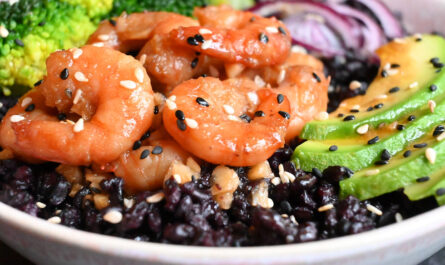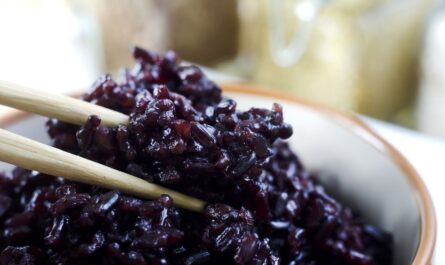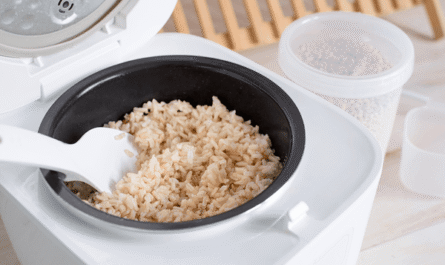Many people often wonder, is black rice better than brown rice? This question is particularly intriguing for sushi enthusiasts who are always on the lookout for the healthiest and most flavorful rice options. Both black rice and brown rice offer unique benefits, making the choice between them a topic of interest not only for your health but also for your culinary adventures.

What is Black Rice?
Black rice, also known as ‘forbidden rice’, is a type of rice that is known for its distinctive black color, which turns purple when cooked. This unique color is due to its high content of anthocyanins, the same antioxidants found in blueberries and blackberries. Historically, black rice was reserved for Chinese royalty due to its rarity and nutritional benefits.
What is Brown Rice?
Brown rice is a whole grain rice with only the outer hull removed, leaving the nutrient-rich bran and germ. This type of rice is known for its chewy texture and nutty flavor, making it a favorite among health-conscious individuals. Brown rice retains more nutrients compared to white rice because it undergoes less processing.
Nutritional Comparison
When comparing black rice and brown rice, it’s essential to look at their nutritional profiles. Both types of rice are rich in nutrients, but they provide different health benefits.
Vitamins and Minerals
Black rice is rich in iron, vitamin E, and antioxidants, while brown rice is an excellent source of magnesium, phosphorus, selenium, and B vitamins. These nutrients play crucial roles in maintaining good health, such as supporting immune function and promoting healthy skin.
Antioxidant Content
The deep black color of black rice is an indicator of its high antioxidant content. Antioxidants help protect the body from free radicals and oxidative stress, which can lead to chronic diseases. In contrast, while brown rice does contain antioxidants, it has significantly less compared to black rice.
Glycemic Index
The glycemic index (GI) of rice is an important consideration for those managing blood sugar levels. Black rice has a lower GI compared to brown rice, meaning it causes a slower, more gradual rise in blood sugar levels. This makes black rice a better option for those with diabetes or insulin resistance.
Fiber Content
Both black rice and brown rice are high in dietary fiber, which is essential for digestive health. Fiber helps maintain bowel regularity, reduces cholesterol levels, and can aid in weight management. However, brown rice slightly edges out black rice in fiber content.
Cooking and Culinary Uses
While black rice is often used in Asian desserts due to its sweet, nutty flavor, it can also be used in savory dishes. Brown rice, on the other hand, is versatile and can be used in a variety of dishes, from rice bowls to stir-fries and salads. For those interested in perfect sushi, understanding the properties of different rice types is crucial.
Environmental Impact
It’s also worth considering the environmental impact of your rice choices. Black rice is typically grown in smaller quantities and often in more sustainable ways compared to brown rice. Supporting the cultivation of black rice can help promote biodiversity and sustainable agriculture practices.
Price and Availability
Generally, black rice is more expensive and less readily available than brown rice. However, its unique flavor and nutritional benefits can make it a worthwhile investment for those looking to diversify their diet.
Conclusion
In conclusion, when considering whether black rice is better than brown rice, it largely depends on your dietary needs and preferences. If you’re looking for a rice variety rich in antioxidants and with a low glycemic index, black rice might be the way to go. On the other hand, if you prefer a rice that is high in fiber and more versatile in cooking, brown rice could be your best bet. For more insights into rice and health benefits, check out this external source.

FAQs
Is black rice good for weight loss?
Yes, black rice can aid in weight loss due to its high fiber content, which promotes satiety and reduces overall calorie intake.
Can I substitute black rice for brown rice in recipes?
While you can substitute black rice for brown rice in most recipes, keep in mind that black rice has a different flavor and texture, which might alter the dish’s taste.
What is the best way to cook black rice?
The best way to cook black rice is to rinse it thoroughly under cold water, then simmer it in a pot of water or broth for about 30-35 minutes until tender.
This article contains affiliate links. We may earn a commission at no extra cost to you.




